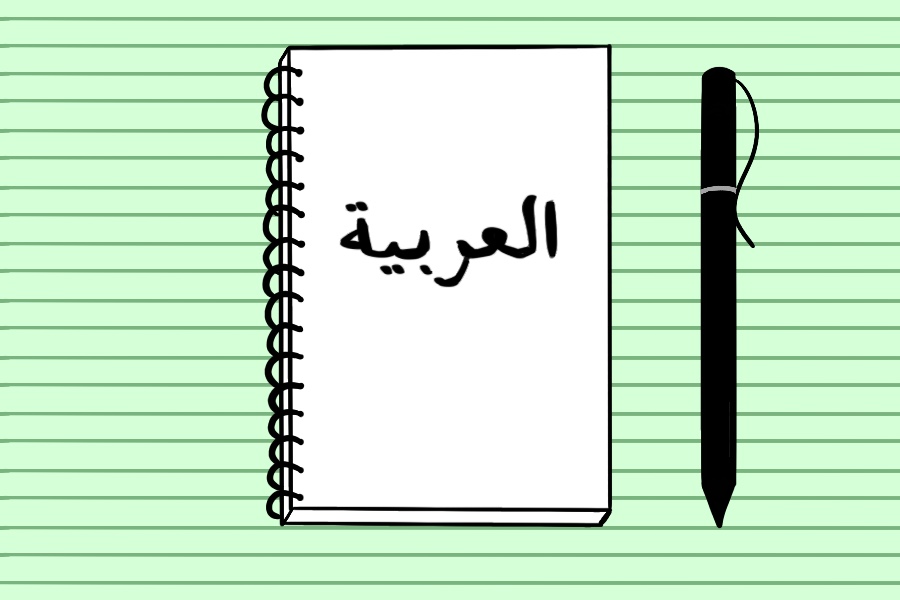Northwestern’s Arabic professors implement new teaching approach to integrate speaking and writing skills
Northwestern Arabic faculty instill new teaching philosophy to globalize Arabic learned in the classroom setting.
May 12, 2022
Communication freshman Rama Darayyad, a communications sciences and disorders student, hopes her major will help her travel abroad and provide hearing aids to kids in places like Lebanon and Jordan.
Darayyad is among many planning to work abroad during or after their time at Northwestern. But in order to connect with the cultures of non-English speaking countries, students need language proficiency.
Palestinian by heritage but Chicago born and raised, Darayyad is a native Arabic speaker.
“Right now, I speak it with my family, and I speak it colloquially,” she said. “But in the professional world, I would like to know some vocab, like in medicine.”
Until a year ago, written Arabic, which is largely used in professional settings, was taught in classrooms. But this version does not encompass the entirety of the language; Ammiyah Arabic, the common spoken language, was missing from the University’s language curriculum, according to Arabic Prof. Ragy Ibrahim Mikhaeel.
Due to this discrepancy, NU has adopted a new teaching philosophy over the past year based on the book “The Integrated Approach to Arabic Instruction” by Munther Younes. It allows students to learn both Ammiyah and written Arabic so they can converse with Arabic speakers fluently and also understand the more formalized language.
“(Students) get to their study abroad experiences, and they start to communicate with people using the written format of the language and (native) people start to laugh,” Mikhaeel said. “Students feel they are betrayed (and say), ‘You told us we can communicate this, now people are laughing at us, why?’”
The difference between spoken and written portions of languages are usually relatively subtle: for instance, German has little differences between the two, according to German Prof. Franziska Lys.
She said Arabic functions differently in that there are various versions of the language used when communicating. Apart from the Modern Standard Arabic, a modern-day written form, and the Ammiyah, there is also FusHa, an older written version used primarily in the Quran.
“But that’s not the language that people use when they speak to each other when they are in the street,” Lys said.
And according to Mikhaeel, some terminology within spoken Arabic dialects are not interchangeable or connected with aspects of the written language.
The professor said some are against the adoption of Ammiyah Arabic teachings in the classroom because they claim that learning two languages is confusing for students.
“What’s wrong if it’s a learning curve?” Mikhaeel said. “Probably after the first year, this is my personal feedback, students learn how to separate (Ammiyah Arabic) from (written Arabic).”
The misuse of written Arabic in spoken dialect can even have political consequences, Mikhaeel said. Around 15 years ago, U.S. ambassadors to the Middle East with only a written-language proficiency were unable to translate both spoken meetings and written documents.
That’s why Mikhaeel said changing the way Arabic is taught in American classrooms is important.
“You don’t go to Rome and speak in Latin,” he said. “So through these 17 to 18 years, I’ve found a huge change in the way Arabic is being taught.”
Now, Mikhaeel teaches a class called Arabic 216-0: Language and Culture, which Darayyad has taken. She said NU offers plenty of upper-level Arabic courses that are embedded in the culture of the Middle East and North Africa.
The Integrated Approach of Teaching Arabic at NU has broadened the program to a more globalized scale, according to Mikhaeel. NU students are passionate about learning and perfecting their Arabic completely — whether it’s in the professional or colloquial sense, he added.
“Our students are smart, and they absorb and learn more than what we can expect,” Mikhaeel said.
Email: [email protected]
Twitter: @swarthout_iris
Related Stories:
— Arab Expressions highlights Arabic poetry and music in Arab Heritage Month


